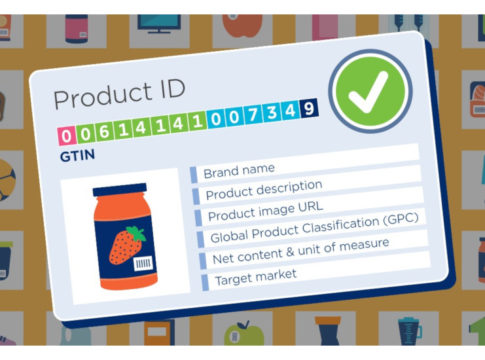GS1 US has expanded its product identification offering for small and micro businesses with the introduction of a single GS1 US Global Trade Item Number (GTIN). Ideal for businesses that are launching a new product, the new single identifier will provide a low-cost option to uniquely identify products and streamline the process for getting items ready for sale across retail and e-commerce channels.
A GTIN is the unique product identifier encoded into a U.P.C. barcode that is widely accepted by most retail systems. With a one-time cost of $30, a business can create a single GTIN, manage related product data and share the information with trading partners using GS1 US Data Hub | Product. Additionally, a business that licenses an individual GTIN will automatically be included in the GS1 Global Registry, a database that many retailers and online marketplaces use to verify product identification and confirm product authenticity.
The single GTIN offering was created to support the needs of U.S.-based small businesses that are increasingly using e-commerce to sell their products as consumer purchasing activity rapidly shifts online. According to a recent Amazon study, American small businesses sold more than 3.4 billion products through the online marketplace in the past year, up from 2.7 billion the previous year. Additional research underscores the importance of having U.P.C.s and GTINs in online product listings. A GS1 US study revealed in 2019 that the majority of growing small businesses (54%) said that using U.P.C.s in their product listings made it easier for customers to find and buy their products.
“Since the onset of the COVID-19 pandemic, we’ve seen an uptick in the number of small businesses needing to identify their products to sell online,” said Bob Carpenter, president and CEO, GS1 US. “We want to support these small brands on their journey and provide them with an authentic GTIN that will not only be accepted by a variety of retailers and online marketplaces globally, but also make it easier for consumers to find and buy their products.”
Since requirements can vary by retailer, small businesses should consult seller guidelines to understand which GS1 identification standards are needed to support electronic data exchange, shipping and other purposes. To help small businesses make informed product identification decisions, GS1 US has created an estimator tool and other resources to support their growth. Please visit www.gs1us.org/upcs-barcodes-prefixes/get-a-barcode for more information.





